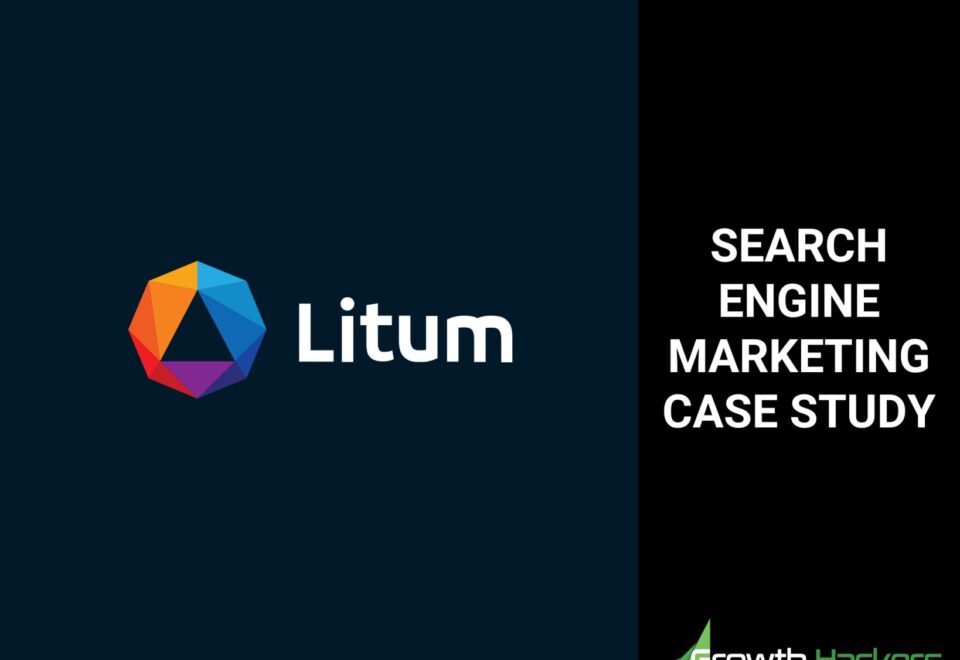Businesses today face an ever-expanding panorama of opportunities and problems when it comes to promoting their goods and services in the digital era. By utilizing cutting-edge tools and technology to enhance their campaigns and produce significant conversions, businesses can now interact with their target audience in a manner that was never possible before the development of software-driven digital marketing.
Businesses are looking at cutting-edge strategies to stay ahead in this changing environment, from automation and big data analytics to artificial intelligence and machine learning. In this essay, we will examine the landscape of digital marketing and look into the tactics and tools that might enable companies to prosper in the age of software.
What Is the Landscape and Strategy of Digital Marketing?
The field of digital marketing is quite broad. It consists of a variety of online marketing initiatives that draw potential clients, engage them in various ways, and verify transactions. The term “landscape” in this context, therefore, refers to utilizing numerous marketing platforms and channels to draw clients, engage them, and boost revenues.
The market is beginning to take shape as a result of the daily growth of consumers, who prefer to research things online before placing their orders. For optimal reach, even owners of physical stores should incorporate digital marketing into their marketing strategy and budget. Even start-up businesses find it easier to find their niche in a competitive environment with the help of software development services for startups, which give a strong start at the beginning. As a result, the marketing tool becomes an essential component of any organization to remain competitive and increase sales.
Recognizing the Digital Marketing Environment
The digital marketing landscape has developed into a busy field where companies compete to win the interest and allegiance of online customers in today’s hyper-connected society. Organizations have a wide range of channels and methods at their disposal, which presents both tremendous potential and formidable hurdles when it comes to turning clicks into useful conversions. Businesses must use cutting-edge tools and technology that may boost their digital marketing outcomes to new heights if they are to effectively traverse this dynamic environment.
The landscape of digital marketing includes several avenues via which companies may interact with their target market. Social media sites like Facebook, Instagram, and Twitter provide a wealth of opportunities for promoting a business, encouraging community interaction, and increasing website traffic. While search engine optimization (SEO) provides organic visibility and improved positions in search results, search engine marketing (SEM) allows firms to secure important search engine real estate through paid advertisements. Email marketing is still a potent technique for developing client connections and encouraging repeat business. Businesses may also use affiliate marketing, content marketing, and influencer partnerships to broaden their online presence.
The path from clicks to conversions is not without challenges, though. Getting and keeping the attention of technologically savvy customers is one of the biggest problems that organizations confront. Customers have grown more picky and discriminating in their online interactions as a result of the huge selection of alternatives at their disposal. Businesses must generate an engaging, individualized message that connects with their target audience to break through the noise and build genuine relationships.
Businesses must make use of cutting-edge tools and technology to overcome these obstacles and succeed in the field of digital marketing. Platforms for marketing automation help businesses simplify their campaigns, automate time-consuming operations, and nurture leads efficiently. These solutions offer insightful data on customer behavior, enabling companies to develop data-driven strategies and improve their operations. Businesses can measure key performance indicators, carry out A/B testing, and continuously improve their digital marketing efforts thanks to advanced analytics solutions.
Tools for Social Media Marketing
Many different tools and applications support social media marketing, including ones for managing, scheduling, and finding content. Since social media marketing is now crucial for all brands and companies, success depends on creating a social media strategy that increases brand recognition and returns on investment.
Buffer
Another strong social media management tool with scheduling options and thorough data is Buffer. Businesses can quickly plan postings, work together with team members, and monitor engagement numbers thanks to its user-friendly design. The statistics from Buffer help organizations determine the efficacy of their social media initiatives by offering insightful data on reach, engagement, and follower development. Additionally, the program provides connectivity with several social media networks, making it simple to manage many accounts at once.
Hootsuite
A well-liked and complete social media management application called Hootsuite enables companies to plan posts, keep an eye on discussions, and measure interaction across many social media networks from a single dashboard. Businesses can effectively manage their social media presence using Hootsuite, keep a regular publishing schedule, and interact in real-time with their audience. The platform also offers statistics and reports to track trends, evaluate the success of social media initiatives, and make informed decisions.
Brandwatch
Hootsuite’s Brandwatch social listening integration is a must have for your social media strategy. It enables extensive keyword tracking and analysis, brand mention tracking, and audience activity tracking. Brand monitoring, often known as keeping tabs on the dialogue surrounding your brand, is simple to do.
You can monitor what your audience is saying about you and subjects pertaining to your brand and sector with Brandwatch. After that, you may provide information that appeals to their interests or join discussions about your company.
Sprout Social
The complete social media management and analytics application Sprout Social comes with a number of tools that help speed up social media operations. Sprout Social makes managing social media accounts easier by allowing users to schedule and publish posts, track brand mentions, and interact with followers. The program also offers thorough analytics and reporting, allowing companies to monitor the success of their social media initiatives, gauge interaction rates, and acquire insightful information about their audience. Additionally, Sprout Social provides social listening tools that let companies keep an eye on discussions relating to their brand and sector, spot trends, and actively interact with their audience.
Are you ready to leverage the power of the latest digital marketing trends and tools?
Contact Growth Hackers
Tools for Email Marketing
Businesses may still engage with their customers, nurture prospects, and increase conversions with email marketing. Businesses rely on a number of tools that are especially made to expedite their operations, improve personalization, and measure success to increase the efficacy of email marketing campaigns. Here are the top five email marketing tools that may assist companies in achieving their objectives and standing out in the crowded online market.
Lemlist
Lemlist differs from the rest of our email marketing products in that its primary focus is deliverability. Lemlist is great for improving your current campaigns since it emphasizes the optimal times to deliver your messages (and how frequently) in order to get more opens and clicks.
Lemlist may be enlightening in terms of how to warm up your list, rather than making you question your marketing efforts.
Additional capabilities include follow-up email sequences to promote more responses from cold prospects and personalization options to help your outreach emails seem less spammy.
Mailchimp
One of the most well-liked and accessible email marketing platforms is Mailchimp. A wide range of functions are available for designing, sending, and automating email campaigns. Businesses may simply create aesthetically beautiful emails using its user-friendly drag-and-drop editor without any coding experience. Additionally, Mailchimp offers sophisticated segmentation and personalization features that let firms customize their communications for different audience subgroups. Businesses may measure open rates, click-through rates, and conversion KPIs using the platform’s powerful analytics and reporting options.
Drip
Drip is a well-known email marketing automation solution with strong eCommerce features. It provides a comprehensive collection of capabilities designed specifically for online merchants and companies using eCommerce systems. Drip offers sophisticated segmentation options that are based on user activity, past purchases, and interaction. The platform provides workflows for consumer re-engagement, abandoned cart recovery, and targeted product suggestions. Businesses can send tailored emails at every point of the customer journey with Drip’s automation tools, which will increase conversions and client loyalty.
Conversion Optimization Tools
Simply altering the call-to-action button’s color might be the difference between getting a free trial sign-up and having someone bounce. One of the digital marketing tools in your arsenal that can help you find opportunities for speedy income increase is conversion optimization software.
Unbounce
Unbounce is a platform for optimizing landing pages that enables companies to develop and test landing pages with excellent conversion rates without having any prior coding experience. Businesses may easily construct aesthetically appealing landing pages targeted to certain campaigns or offers using its drag-and-drop builder and pre-designed themes. With the help of Unbounce’s A/B testing features, organizations can evaluate many landing page iterations to find the one with the best layout, messaging, and call-to-action. Businesses may increase the efficiency of their marketing initiatives and boost their overall conversion rates by optimizing their landing pages for conversions.
Optimizely
Businesses can conduct A/B testing and improve their websites for higher conversion rates with Optimizely, a market-leading experimentation platform. With the help of Optimizely, companies can create numerous versions of their web pages and test various components, like headlines, call-to-action buttons, layouts, and colors, to see which ones provide the best conversion rates. Businesses may make data-driven choices and constantly enhance the performance of their websites by rigorously evaluating various versions.
Crazy Egg
Crazy Egg is a conversion optimization tool that uses heatmaps and scroll maps to show visual representations of user activity. Heatmaps display the areas of a website where users are clicking, scrolling, and spending the most time. Scroll maps show how far down a website users have scrolled, which helps businesses decide where to position important components. Other capabilities offered by Crazy Egg include overlay reports, which provide comprehensive click statistics for specific components, and confetti maps, which display clicks based on referral sources. Businesses may enhance conversions by optimizing the style, content, and calls-to-action on their websites with the aid of these visual insights.
Analytics Tools
Digital marketing relies heavily on analytics tools since they offer insightful data on user behavior, campaign performance, and overall marketing efficiency. With the help of these technologies, firms may make decisions using data, improve their plans, and accomplish their marketing objectives. Here are the top five digital marketing analytics tools that may assist companies in gaining insightful knowledge and achieving success.
Google Analytics
The popular and effective analytics tool Google Analytics provides in-depth information on website traffic, user activity, and campaign effectiveness. As of today, statistics show that 86% percent of all sites use Google Analytics. It offers comprehensive statistics on user demographics, page visits, bounce rates, and conversion rates. Businesses may use Google Analytics to monitor website performance, analyze the success of marketing activities, and pinpoint problem areas. To assist businesses in improving their conversion rates and comprehending the client experience, the application also provides capabilities like goal monitoring, ecommerce tracking, and conversion funnels.
Adobe Analytics
Advanced tools for evaluating and improving digital marketing operations are available with Adobe Analytics, an enterprise-level analytics program. Deep insights on client behavior across many channels and touchpoints are provided. Businesses may evaluate certain target segments using Adobe Analytics’ extensive segmentation features to then tailor their marketing campaigns. To assist organizations in gaining useful insights and enhancing their marketing effectiveness, the product also provides real-time analytics, data visualization, and AI-powered suggestions.
Mixpanel
Mixpanel is a sophisticated analytics tool that emphasizes behavioral analytics and user engagement. It has capabilities including cohort analysis, user segmentation, and event tracking. Businesses may use Mixpanel to track particular user behaviors, comprehend customer journeys, and examine the effects of various marketing initiatives on user behavior. The tool offers powerful segmentation options and real-time data, enabling businesses to target particular user groups and tailor their strategies like acquisition marketing accordingly. With the help of Mixpanel’s advanced analytics tools, companies can better understand user behavior, improve their marketing tactics, and increase engagement and conversions.
Future Trends: Software-Driven Digital Marketing Evolution
The environment of digital marketing is always changing as a result of developments in software and technology. Emerging trends are determining how software-driven digital marketing will develop in the future as companies work to remain ahead of the competition and successfully communicate with their target audience. Let’s examine some of these trends and how they might affect digital marketing plans.
Artificial Intelligence (AI)
Digital marketing is just one of many fields where AI has already made significant progress. Using AI-driven tools and algorithms, it is possible to scale out tailored experiences, automate processes, and analyze large amounts of data. By selecting the right audience to target, developing dynamic ad content, and even forecasting consumer behavior, AI can improve advertising campaigns.
Artificial intelligence-powered chatbots can improve customer interactions by offering immediate assistance and tailored recommendations. Businesses can anticipate more sophisticated AI-driven solutions to boost marketing effectiveness and provide exceptional user experiences as AI technology develops.
Unleash the power of digital marketing and unlock your business’s full potential today!
Machine Learning (ML)
Without explicit programming, machine learning algorithms can learn from data and make predictions or decisions. ML can be applied to digital marketing to analyze consumer behavior, spot trends, and improve advertising campaigns. By segmenting audiences based on their preferences and behaviors, ML algorithms help companies deliver highly relevant and targeted content.
Additionally, ML can automate the process of analyzing and improving different marketing components, including headlines, graphics, and calls to action. Digital marketers can use this technology to increase engagement, conversions, and customer satisfaction as machine learning algorithms advance.
Big Data Analytics
Digital interactions are producing an exponential increase in data. Big data analytics tools assist businesses in making sense of this enormous volume of data and gleaning insightful information for wise decision-making. Businesses can improve their marketing strategies and provide individualized experiences by studying customer behavior, preferences, and purchasing trends.
Real-time marketing campaign optimization, trend identification, and market shift prediction are other benefits of big data analytics. Businesses can use big data analytics to find untapped opportunities, gain a competitive edge, and maximize their marketing ROI as technology advances.
Personalization and Automation
Digital marketing has changed dramatically as a result of automation. Modern marketing automation tools that automate repetitive tasks, nurture leads, and provide individualized experiences have been made possible thanks to software development. Automation workflows can start customized email campaigns, modify website content according to user behavior, and even automate posting to social media.
Due to the ability to interact with customers at every stage of the customer journey, businesses are better able to convert leads and satisfy clients. As software development continues to evolve, automation will become more intuitive and seamlessly integrated into digital marketing strategies.
Final Words on the Power of Digital Marketing, Tools and Trends
Entrepreneurs and people who want to launch a startup must adopt software-driven strategies to stay competitive and successfully engage with their target audience as the digital marketing landscape continues to change. The power of automation, big data analytics, machine learning, and artificial intelligence is changing how businesses approach marketing.
Businesses can unlock priceless insights, provide individualized experiences, and maximize the impact of their campaigns by utilizing these tools and technologies. As software development advances, the future of digital marketing holds even more exciting possibilities. Businesses need to be adaptable, keep up with new trends, and harness the power of software-driven digital marketing if they want to succeed in this new era and meet their marketing objectives.
Growth Hackers provides top digital marketing services helping businesses from all over the world grow. There is no fluff with Growth Hackers. We help entrepreneurs and business owners seize the power of digital marketing’s latest trends and tools, increase their productivity, generate qualified leads, optimize their conversion rate, gather and analyze data analytics, acquire and retain users and increase sales. We go further than brand awareness and exposure. We make sure that the strategies we implement move the needle so your business grow, strive and succeed. If you too want your business to reach new heights, contact Growth Hackers today so we can discuss about your brand and create a custom growth plan for you. You’re just one click away to skyrocket your business.









